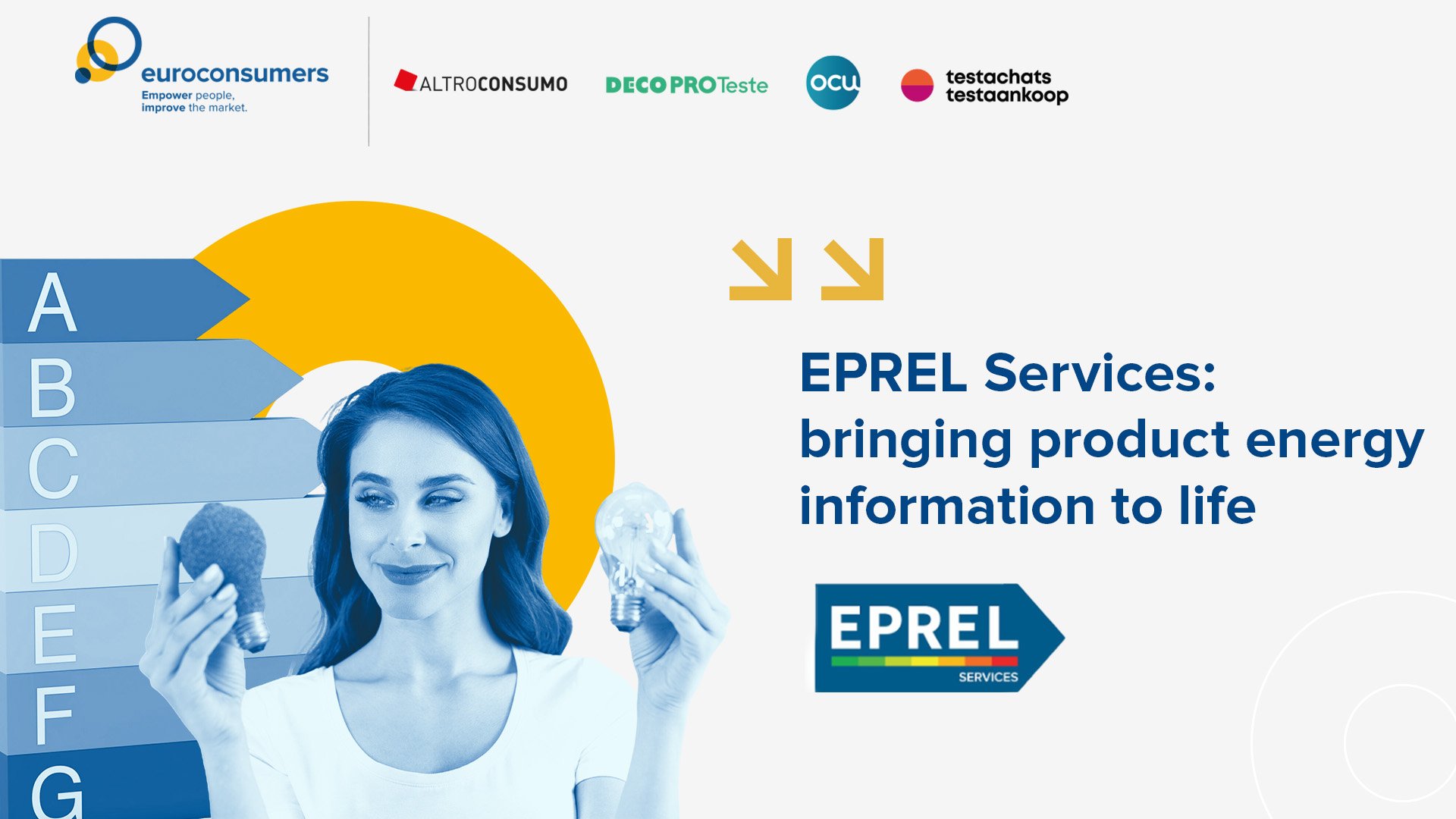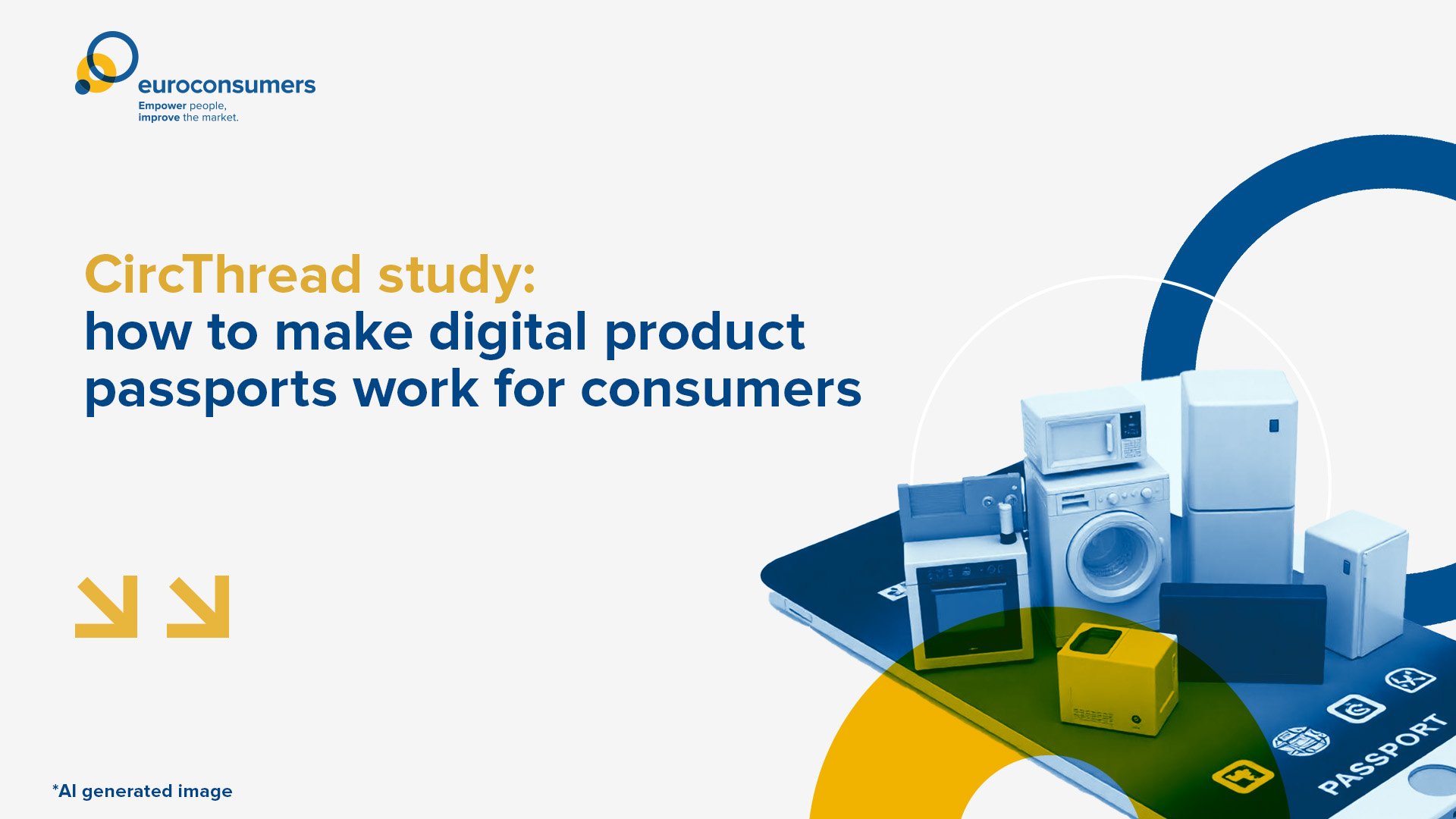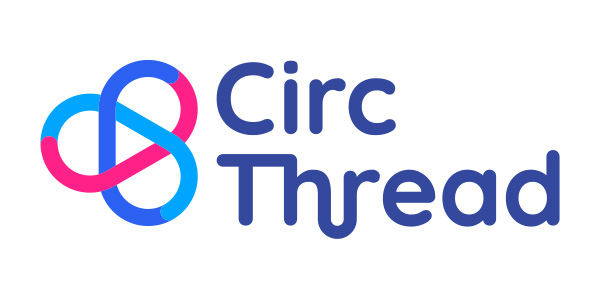
EPREL Services: bringing product energy information to life
Euroconsumers members OCU, Altroconsumo, Testachats and DecoProteste are part of the EPREL services project, a new network making energy efficiency product information work harder
Read More


Euroconsumers’ members Altroconsumo and OCU are part of CircThread, an EU multi stakeholder consortium finding practical ways to put product markets on a sustainable, circular footing.
A major component of CircThread’s plans to make the vital shift to a circular product system happen is by unlocking consumer access to critical product information in order to drive new ways of buying, maintaining, repairing and reusing appliances.
CircThread is testing a Digital Information Platform, which can link up to product information such as product datasheets, maintenance guidance, life cycle sustainability assessments and circularity assessment disclosure for appliances which form part of the new EU-regulated ‘digital product passports’.
As consumer experts within the CircThread project, Euroconsumers’ members Altroconsumo and OCU have been running consumer pilots with just over 50 people to test how easy it is for people to engage with the type of product data in Digital Product Passports..
In Spain, OCU pilot tested how well the Digital Product Passport worked for consumers using a pellet boiler connected to photovoltaic panels and lithium battery storage. This was chosen as a good way to test out how people could access useful information about battery life and solar panel maintenance.
Here’s what they learnt:
In Italy, Altroconsumo focused on full, digital product information accessible via a QR code on newly manufactured dishwashers. This rich data can potentially be used in many different ways by consumers who want to make more sustainable choices when they purchase and use household appliances.
Here, Altroconsumo report back on their findings and ideas for improvements:
The rich data from Digital Product Passports can help consumers who want to make more sustainable choices when they purchase and use household appliances.
In the real life use cases that OCU and Altroconsumo studied, consumers appreciated and valued the potential, but also gave us some useful tips on how to make Digital Product Passports more user friendly.
Information and guidance is often seen as key to changing behaviour. However, we know, and consumers in the pilots confirmed, that it takes more than just making technical data available to shift patterns.
It is critical to get the right information, in the right format at the right time to people to encourage and reward new, more sustainable choices and usage patterns.
Digital Product Passports are in their initial phase, but learning exactly what consumers want from them will be critical for their success.
To discover more about the CircThread learnings, register here for the final all day event that will take place at the COMET conference centre, Brussels on May 8th

